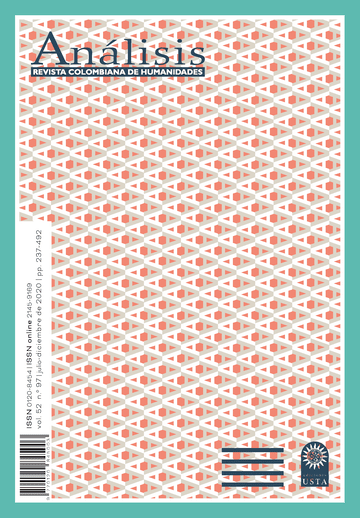La alternativa ecosocialista. Una entrevista con Michael Löwy
The Ecosocialist Alternative. An Interview with Michael Löwy
Abstract (en)
The planetary ecological crisis deepens at an accelerated rate endangering the balance of life and the survival of human civilization. In the last half century, several radical alternatives of eco-social transformation have emerged in the field of political ecology to challenge the dominant system from different ethical, ecological, social, and economic grounds. One of them, ecosocialism, arose in the 1970s in Europe and has been growing in the last 20 years in Latin America. Although it has variations, Marxism constitutes the main theoretical-methodological core of ecosocialism. Michael Löwy is a French-Brazilian ecosocialist philosopher and sociologist. He is also one of the most important figures of Marxist thinking: a political-philosophical node for the debate between Europe and Latin America. Here we present an April 2020 interview with professor Löwy and the transcription of two ecosocialist manifestos, The First International Ecosocialist Manifesto of 2001 and The Belem Ecosocialist Manifesto of 2009, both coauthored by the interviewee.
Abstract (es)
La crisis ecológica planetaria continúa su profundización acelerada mientras sigue poniendo en peligro el balance de la vida y la sobrevivencia de la civilización humana. Frente a esto, en el último medio siglo varias alternativas radicales de transformación eco-social han emergido en el campo de la ecología política para desafiar al sistema imperante desde distintas consideraciones éticas, ecológicas, sociales, económicas, etc. Una de ellas, el ecosocialismo, que surgió en la década de 1970 en Europa, se ha venido fortaleciendo en los últimos 20 años en América Latina. Aunque tiene variantes, el ecosocialismo tiene al marxismo como constituyente principal de su núcleo teórico-metodológico, y Michael Löwy, un filósofo y sociólogo ecosocialista franco-brasileño, y, al ser una de las grandes figuras del pensamiento marxista en la actualidad, constituye un nodo político-filosófico para el debate sobre el tema entre Europa y América Latina. Teniendo esto en presente, y con el objetivo de dar cuenta de los principales argumentos de dicha postura, en este documento presentamos una entrevista con el profesor Löwy ¾realizada en abril de 2020¾, así como la transcripción de dos manifiestos ecosocialistas: el Manifiesto Ecosocialista Internacional, de 2001, y la Declaración Ecosocialista Internacional de Belén, de 2008, ambos de coautoría del entrevistado.
References
Löwy, M. (1972). La Teoría de la Revolución en el Joven Marx. México: Siglo XXI. (Original en francés: 1970).
Löwy, M. (1978). Para una sociología de los intelectuales revolucionarios: la evolución política de Lukács 1909-1929. México: Siglo XXI. (Original en francés: 1975).
Löwy, M. (1985). El pensamiento del Che Guevara. México: Siglo XXI. (Original en francés: 1970).
Löwy, M. (1999). Guerra de dioses. Religión y política en América Latina. México: Siglo XXI. (Original en inglés: 1996).
Löwy, M. (2014). Ecosocialismo. La alternativa radical a la catástrofe ecológica capitalista. Buenos Aires: Ocean Sur. (Original en francés: 2011).
Löwy, M. (2018). Redención y utopía: el judaísmo libertario en Europa central. Un estudio de la afinidad electiva. Santiago: Ariadna. (Original en francés: 1988).
How to Cite
License
Authors who publish with this journal agree to the following terms:
Authors retain copyright and grant the journal right of first publication with the work simultaneously licensed under a Creative Commons Attribution License that allows others to share the work with an acknowledgement of the work's authorship and initial publication in this journal.
Authors are able to enter into separate, additional contractual arrangements for the non-exclusive distribution of the journal's published version of the work (e.g., post it to an institutional repository or publish it in a book), with an acknowledgement of its initial publication in this journal.
Authors are permitted and encouraged to post their work online (e.g., in institutional repositories or on their website) prior to and during the submission process, as it can lead to productive exchanges, as well as earlier and greater citation of published work (See The Effect of Open Access).






